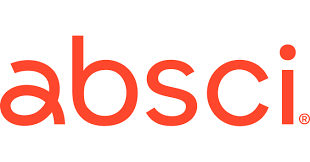























Increased customer retention by 18% through the development of a predictive churn model using machine learning algorithms
Optimized marketing spend by $2.5 million annually by implementing an AI-driven customer segmentation strategy
Led a cross-functional team in the development and deployment of a real-time recommendation engine
Developed a natural language processing model to analyze customer feedback across multiple platforms. The model achieved 92% accuracy in sentiment analysis and topic classification. Insights derived from this project led to targeted improvements in product features and customer service protocols, resulting in a 15% increase in customer satisfaction scores.
Reduced fraudulent transactions by 35% through the implementation of an advanced anomaly detection system
Improved supply chain efficiency by 22% using predictive analytics and optimization techniques
Spearheaded the adoption of cloud-based data processing solutions, enhancing scalability and reducing computation time
Created a computer vision model to automate quality control in manufacturing. The model was trained on over 1 million images and achieved a 99.7% accuracy rate in detecting defects. Implementation of this system reduced manual inspection time by 80% and improved overall product quality by 15%.
Developed a time series forecasting model that improved inventory management accuracy by 28%
Increased A/B testing efficiency by 40% through the implementation of a Bayesian optimization framework
Mentored junior data scientists and interns, fostering a culture of continuous learning and knowledge sharing
Led a project to develop a personalized content recommendation system for a streaming platform. The system utilized collaborative filtering and deep learning techniques to analyze user behavior. After implementation, the platform saw a 30% increase in user engagement and a 25% reduction in churn rate.
Generated $5 million in additional revenue through the development of a dynamic pricing model for e-commerce
Reduced customer support workload by 25% by implementing an AI-powered chatbot with natural language understanding
Championed the adoption of reproducible research practices and version control systems within the data science team
Designed and implemented a predictive maintenance system for a large manufacturing company. The system utilized IoT sensor data and machine learning algorithms to predict equipment failures. This project resulted in a 40% reduction in unplanned downtime and an estimated annual savings of $3.2 million in maintenance costs.
Improved clinical trial patient matching efficiency by 50% using advanced data mining and machine learning techniques
Developed a risk assessment model that increased loan approval accuracy by 22% while reducing default rates by 15%
Collaborated with legal and compliance teams to ensure ethical use of data and adherence to privacy regulations
Created a deep learning model to analyze satellite imagery for agricultural yield prediction. The model incorporated multispectral image data and historical weather patterns to provide accurate crop yield forecasts. This project enabled farmers to optimize resource allocation, resulting in a 18% increase in crop yields and a 12% reduction in water usage.
With our extensive candidate network and dynamic team search approach, Redfish recruiters can greatly reduce your time to hire compared to in-house hiring processes.
Redfish recruiters handle every step of the process, including finding talent, screening candidates, scheduling interviews, conducting reference checks, and negotiating the offer, freeing up your in-house HR staff to focus on their other responsibilities.
We form the same in-depth relationships with clients that we establish with candidates, taking the time to fully understand your company and needs and giving each client a single point of contact for all communications.
We understand the roles we recruit for inside and out, whether that’s the technical jargon familiar to engineers and programmers or the skills that make an exceptional sales or marketing hire. When we send along a candidate, you can trust they have what it takes to excel.
With 20+ years in the recruiting industry, Redfish Technology has built an extensive network of connections and candidates, and our reputation precedes us. We’re a recruiting firm top talent wants to work with, giving you access to better talent than you’ll find from other services.




A Data Scientist is a professional who uses statistical and computational methods to extract insights and knowledge from data. They combine expertise in mathematics, statistics, and programming to solve complex business problems and drive data-driven decision-making.
Key skills for a Data Scientist include proficiency in programming languages like Python or R, strong statistical knowledge, machine learning expertise, data visualization skills, and the ability to communicate complex findings to non-technical stakeholders.
While both roles work with data, Data Scientists typically have more advanced mathematical and programming skills. They focus on developing complex models and algorithms, while Data Analysts often concentrate on interpreting existing data and creating reports.
Most Data Scientists have at least a master’s degree in fields such as Computer Science, Statistics, Mathematics, or a related quantitative discipline. Some positions may require a Ph.D., especially for more research-oriented roles.
Data Scientists can drive business growth by uncovering patterns in data that lead to new product ideas, identifying opportunities for process optimization, predicting customer behavior, and providing insights that inform strategic decision-making.
A Data Scientist should be familiar with programming languages like Python or R, database technologies such as SQL, big data tools like Hadoop or Spark, and machine learning libraries such as scikit-learn or TensorFlow.
You can assess technical skills through coding challenges, data analysis case studies, and technical interviews that cover statistical concepts and machine learning algorithms. Consider also reviewing their portfolio of past projects.
Data Scientists are employed across various industries, including technology, finance, healthcare, e-commerce, manufacturing, and marketing. Any industry that generates significant amounts of data can benefit from employing Data Scientists.
While not always necessary, domain knowledge can be very valuable. It helps Data Scientists understand the context of the data they’re working with and can lead to more meaningful insights. However, many Data Scientists can quickly learn and adapt to new domains.